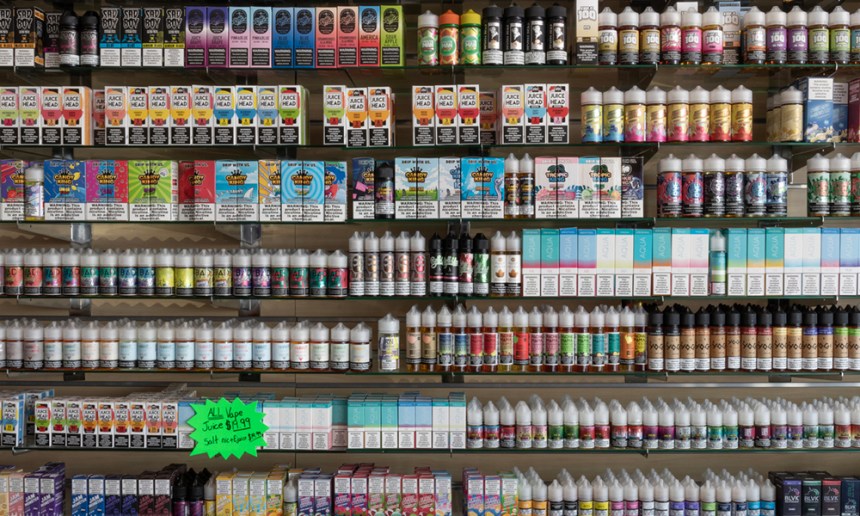John Redmayne, CEO of ERP UK, explains what the sector needs to know after the sale of disposable vapes was banned across the UK on 1 June.
Twenty-two years since e-cigarettes were invented by a Chinese pharmacist, vape use continues to rise sharply in the UK. In 2024 alone, UK consumers purchased an estimated 13.5 million vapes every week – a 37% increase on the previous year.
But alongside this boom in sales, the environmental impact is becoming harder to ignore. Recent figures suggest that 8.2 million single-use, pod, and ‘big puff’ vapes are thrown away or improperly recycled every week – equivalent to 13 every second.
Containing lithium-ion batteries, these devices pose a growing fire risk and place considerable strain on already stretched waste and recycling infrastructure. Although more retailers are offering in-store take-back, the volume of waste is far outpacing collection.
However, UK authorities are now stepping up regulatory enforcement. So, what exactly is about to change?
The sale of single-use vapes has been banned

Until recently, many producers and retailers operated in a grey area – either unaware of their obligations under the UK’s Extended Producer Responsibility (EPR) rules, or simply ignoring them.
Now enforcement is being ramped up. The Environment Agency, in collaboration with Trading Standards, the Department for Environment, Food & Rural Affairs (DEFRA), and the Office for Product Safety and Standards (OPSS), is cracking down on vape producers who fail to register with a compliance scheme and meet their legal obligations around product take-back, reporting, and funding waste treatment.
While these rules have existed for years – under the Waste Electrical and Electronic Equipment (WEEE) regulations – the vape sector has largely flown under the radar.
Now enforcement is being beefed up, starting with the government’s ban on single-use vapes, which took effect on 1 June 2025. In January 2025, Defra issued guidance to help businesses comply with the upcoming restrictions. Retailers must remove all unsold single-use vapes from sale by 1 June, store them securely off the shop floor or website, and arrange for their proper recycling.
The guidance also reinforces the legal requirement for distributors to offer a ‘take back’ scheme for used vape products, even after the ban comes into effect.
SMEs often in the dark about compliance

Smaller retail chains and independent shops are particularly vulnerable to non-compliance – largely due to lack of awareness and guidance. Many are unknowingly stocking non-compliant products or, in some cases, selling own-brand or imported devices that place them squarely in the legal definition of a ‘producer’.
That comes with direct responsibility for registering with a compliance scheme, reporting product volumes, and contributing to the costs of recycling and recovery. The penalties for failing to do so are not insignificant. Fines, public investigations, and reputational damage could impact these businesses directly.
As well as the ban on single-use vapes, the government says it is making changes to the WEEE Regulations including introducing a new category of EEE for e-cigarettes with a broad definition which is expected to include replacement coils, for example.
A separate collection target for the new category will be set by the Secretary of State for Defra from 2026 which will ensure vape producers are supporting the recycling of waste vapes such as those now separately collected at most local authority recycling centres across the UK.
Acting responsibly is good for business

Compliance isn’t just about avoiding penalties; it’s also a chance to stand out. Consumers are increasingly conscious of the environmental footprint of their purchases, and with disposable vapes becoming a national talking point, retailers and brands that show they’re acting responsibly can build trust and customer loyalty.
In local communities, where personal relationships and reputation underpin trade, visible commitment to sustainability can be a powerful differentiator.
At ERP UK[5], we’ve worked with retailers and vape producers large and small – to help them understand and meet their obligations. We’ve seen that with clear, practical advice, small businesses are capable of not only complying, but exceeding expectations.
The days of ignoring vape compliance are over. Every business producing or importing compliant vape products must ensure they’re registered with an approved compliance scheme and actively reporting. This is not just a matter for head offices and legal departments – it affects anyone with these products on their shelves.
ERP UK is here to support that transition. Whether helping stakeholders understand their obligations, liaising with recyclers and regulators, or managing reporting on behalf of companies affected, we provide straightforward, practical support – invaluable for those without internal compliance teams.
Vape compliance might have been swept under the carpet until now, but that era is ending. Small businesses who get ahead of the curve can not only avoid enforcement risk but also take a leadership role in the switch to circularity.
The post Vape waste crackdown: What the sector needs to know appeared first on Circular Online.

